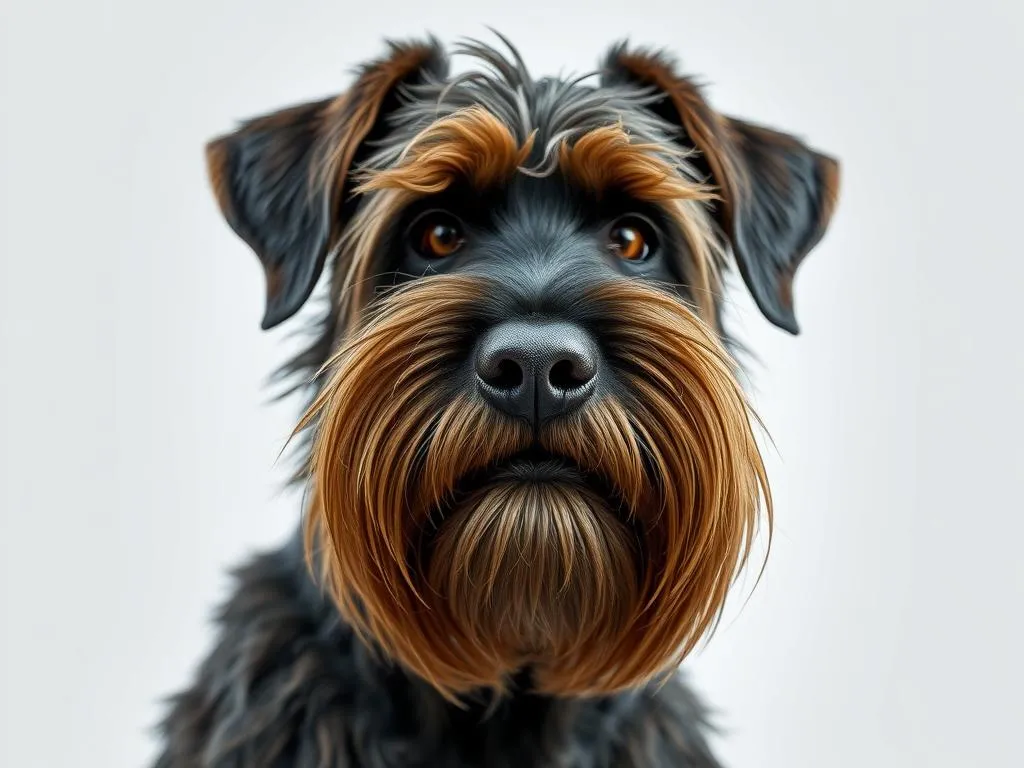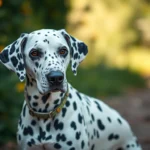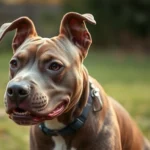
Introduction
Understanding different dog breeds is crucial for anyone considering adding a furry friend to their family. Each breed comes with its own unique characteristics, behaviors, and needs, which can significantly impact your lifestyle. Among the many hybrid breeds available today, the Carnauzer stands out as an intriguing and delightful option. This hybrid is a mix of the spirited Cairn Terrier and the versatile Schnauzer, combining the best traits of both parent breeds.
Choosing the right dog breed is essential to ensure a harmonious fit with your lifestyle. In this article, we will delve into the fascinating world of the Carnauzer, exploring its origins, physical characteristics, temperament, care requirements, and much more.
What is a Carnauzer?
Definition and Origin
The Carnauzer is a charming hybrid dog that blends the spirited nature of the Cairn Terrier with the intelligence and versatility of the Schnauzer. This hybrid breed is relatively new, emerging as more people seek out unique dog breeds that combine the best traits of their parentage. The Cairn Terrier hails from Scotland, originally bred for hunting small game, while the Schnauzer originated in Germany and was primarily used for guarding and working.
The Carnauzer inherits its outgoing personality and adaptability from both parent breeds, making it a wonderful companion for families and individuals alike.
Physical Characteristics
Carnauzers come in a range of sizes, typically weighing between 15 to 25 pounds and standing about 12 to 18 inches tall. Their size can vary depending on the specific traits inherited from their parent breeds.
One of the most distinctive features of the Carnauzer is its coat. The fur can be wiry or soft, often resembling that of the Schnauzer. Common coat colors include black, gray, brown, and a mix of these shades. They may also have the characteristic facial hair reminiscent of the Schnauzer, giving them a unique and appealing appearance.
Temperament and Behavior
The Carnauzer is known for its friendly and playful personality. These dogs are typically very social, making them great companions for families with children. They are energetic and enjoy playtime, which makes them suitable for active households.
In terms of social behavior, Carnauzers usually get along well with other pets, particularly if they are raised together from a young age. Their inquisitive nature means they thrive on interaction and mental stimulation.
The Parent Breeds
Cairn Terrier
The Cairn Terrier is one of the oldest terrier breeds, originating in the Scottish Highlands. Historically, these dogs were bred to hunt vermin among the cairns, or stone piles, thus earning their name.
Physical Characteristics: Cairn Terriers are small, sturdy dogs with a shaggy, weather-resistant coat. They typically weigh between 13 to 18 pounds and stand about 9 to 10 inches tall. Their coat color can vary, including shades of gray, red, brindle, and cream.
Temperament: Known for their lively and courageous nature, Cairn Terriers are highly intelligent and require regular mental and physical stimulation. They are very affectionate and are known to form strong bonds with their families.
Common Health Issues: Like many small breeds, Cairn Terriers can be prone to certain health issues, such as hip dysplasia, patellar luxation, and skin allergies.
Schnauzer
The Schnauzer is a distinctive breed that comes in three sizes: Miniature, Standard, and Giant. Each size has its own unique characteristics, but they all share a common heritage and physical appearance.
Physical Characteristics: Miniature Schnauzers weigh around 11 to 20 pounds, Standard Schnauzers weigh about 30 to 50 pounds, and Giant Schnauzers can weigh between 55 to 85 pounds. All three sizes share a wiry coat that can be black, salt and pepper, or white, with characteristic bushy eyebrows and a beard.
Temperament: Schnauzers are intelligent, energetic, and protective. They are known to be great watchdogs and are very loyal to their families. They thrive on companionship and need regular social interaction.
Common Health Concerns: Schnauzers can be prone to certain health issues, including hip dysplasia, heart conditions, and skin problems.
Care and Maintenance of a Carnauzer
Grooming Requirements
Grooming a Carnauzer can be a fun bonding experience for you and your dog. Their coat requires regular maintenance to keep it looking its best.
- Coat Care: Due to their wiry coat, regular brushing is necessary to prevent matting. Aim for at least two to three times a week, and more frequently during shedding seasons.
- Tools Needed: A slicker brush and a comb are essential for grooming your Carnauzer. You may also want to invest in clippers for trimming their facial hair.
- Bathing Tips: Bathe your Carnauzer every few months or as needed, using a gentle dog shampoo to maintain healthy skin and coat.
Dietary Needs
Proper nutrition is key to keeping your Carnauzer healthy and happy.
- Recommended Diet: A high-quality dog food that meets their specific life stage (puppy, adult, senior) is advisable. Look for options that include real meat as the main ingredient and are free from fillers.
- Portion Control: Depending on their size, Carnauzers should be fed about 1 to 1.5 cups of food a day, divided into two meals. Always consult with your veterinarian for personalized recommendations.
- Common Dietary Restrictions: Some Carnauzers may develop allergies to certain ingredients, like wheat or chicken. Monitor your dog for signs of food sensitivities and adjust their diet accordingly.
Exercise and Activity Level
Carnauzers are energetic dogs that require regular exercise to stay healthy and mentally stimulated.
- Daily Exercise Requirements: Aim for at least 30 to 60 minutes of exercise each day. This can include walks, playtime, or engaging in dog sports.
- Recommended Activities: They enjoy games of fetch, agility training, and even swimming. Keeping their minds engaged is just as important as physical exercise.
- Mental Stimulation Needs: Puzzle toys and training sessions are great ways to challenge your Carnauzer and keep them entertained.
Training a Carnauzer
Basic Training Principles
Training your Carnauzer should begin early to ensure they grow into well-mannered adults.
- Importance of Early Socialization: Exposing your puppy to various environments, people, and other animals will help them develop into a confident and well-adjusted dog.
- Effective Training Methods: Positive reinforcement techniques, such as treats and praise, work best for this intelligent breed. Consistency and patience are key.
Common Challenges
While Carnauzers are generally eager to please, they may exhibit behavioral issues if not properly trained.
- Behavioral Issues: Some common challenges include barking, stubbornness, or separation anxiety. Training should address these issues early on.
- Tips for Overcoming Challenges: Identify triggers for unwanted behaviors and redirect them with positive reinforcement. Consistency and patience will go a long way in resolving any issues.
Advanced Training Opportunities
For those looking to take training further, Carnauzers excel in various activities.
- Agility Training and Dog Sports: These energetic dogs often thrive in agility courses, obedience competitions, and other dog sports that challenge their physical and mental abilities.
- Tricks and Obedience Training Options: Teaching fun tricks can enhance your bond and keep your Carnauzer mentally stimulated.
Health Considerations
Common Health Issues
As with any breed, it is crucial to be aware of potential health concerns that may affect your Carnauzer.
- Overview of Breed-Specific Health Concerns: Some issues may include hip dysplasia, allergies, and dental problems. Regular check-ups with a veterinarian will help catch any potential issues early.
- Preventative Care: Regular vaccinations, dental care, and a balanced diet contribute to your Carnauzer’s overall health.
Lifespan and Aging
The average lifespan of a Carnauzer is around 12 to 15 years, but with proper care, they may live even longer.
- Tips for Caring for Aging Dogs: As your Carnauzer ages, adjustments in diet, exercise, and regular veterinary visits become increasingly important to ensure a comfortable and happy life.
Finding a Carnauzer
Where to Buy or Adopt
If you’re considering adding a Carnauzer to your family, you have a few options.
- Reputable Breeders vs. Shelters: Research reputable breeders who prioritize health testing and socialization. Alternatively, consider adopting from a shelter or rescue organization that may have hybrid breeds available.
- Questions to Ask: When meeting breeders or shelters, inquire about the health history of the parents, socialization practices, and any potential concerns regarding the puppy’s temperament.
Cost Considerations
Understanding the financial commitment of owning a Carnauzer is essential.
- Initial Purchase or Adoption Fees: Prices can vary widely based on the breeder and region, typically ranging from $500 to $1,500. Adoption fees are usually lower, often between $100 and $300.
- Ongoing Costs: Consider the ongoing expenses for food, grooming, routine vet visits, and pet insurance, which can add up over the years.
Conclusion
The Carnauzer is a delightful hybrid breed that brings together the best traits of the Cairn Terrier and Schnauzer. Known for their friendly disposition, intelligence, and adaptability, they make excellent companions for families and individuals alike.
With proper care and training, a Carnauzer can thrive in various environments, making them a suitable choice for many potential dog owners. If you’re considering a Carnauzer, take the time to assess your lifestyle and ensure you can meet their needs for exercise, socialization, and companionship.
In summary, the Carnauzer is a unique and charming dog breed, perfect for those looking for a loyal and playful furry friend.









